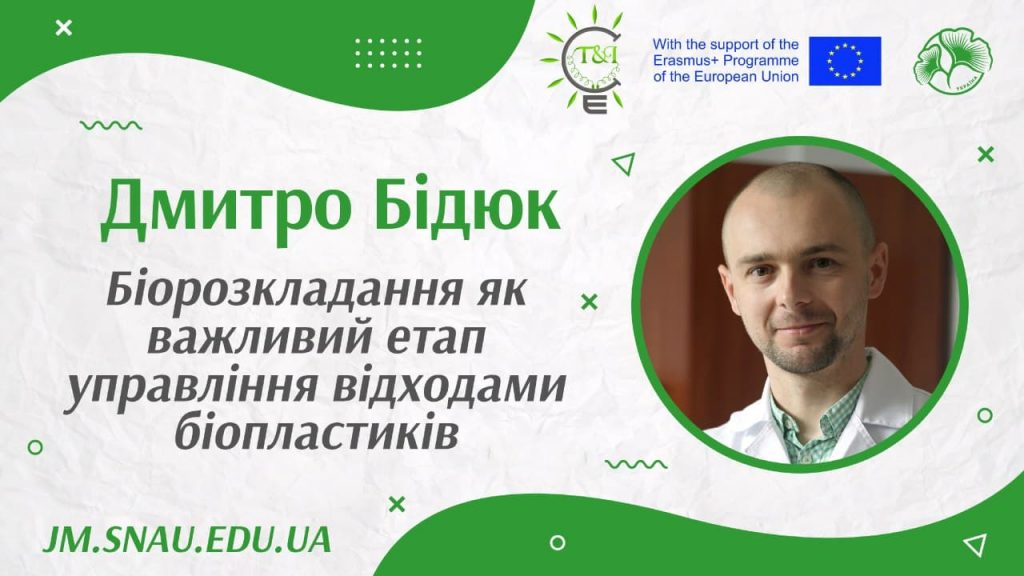Plastic is capturing our planet with increasing speed. Every year new researches show us how close we are
to the catastrophe caused by human activity and what was once an innovative invention – polyethylene has
now become a real threat to humanity.
The world community is faced with the need to develop new rules for the treatment of plastic and
invent safer substitutes for it. One of the important steps in this direction was the adoption of the
European Union Strategy for plastics in a closed economy.
The introduction of mass-replaceable substitutes instead of harmful plastics could accelerate the
situation. Obviously, without the active participation of science this problem can’t be solved.
Sumy National Agrarian University takes a leading position in the development of alternative
packaging. In 2018 the startup FoodBiopack was launched. The scientists developed a biosoluble film that
can completely replace our usual packaging. The invention was awarded at National and International
Competitions and TOP media from all over the world wrote about it.
In 2020 Sumy NAU received a grant under the international project of Jean Monnet “Production
and Dissemination of Circular Economy Ideas in Accordance with the EU Action Plan”, which was a great
opportunity to disseminate the idea of transition to biosoluble analogues of plastic packaging and scaling
up. Thus, during November-December 2020, the initiator of the startup FoodBiopack, PhD in Economics,
Senior Lecturer of the Faculty of Food Technologies of Sumy NAU Dmytro Bidiuk conducted a series of
online seminars, which were attended by more than 200 participants from different parts of Ukraine. The
events were dedicated to the production of bioplastics as a step towards the transition to a closed-cycle
economy.
On the 24 th of November the researcher took part in the online conference with the report
“Application of Bioplastics Technologies: The First Successful Steps”. On the 16 th of December, during the
Palladin Lecture in Kyiv, Dmytro Bidiuk presented the classification of commercially available biodegradable
polymers and also focused on the methods of their utilization.
The final event in a series of seminars within the ACET & I project on biosoluble materials that could
replace plastic was a lecture “Biodegradation as an Important Stage of Bioplastic Waste Management” in
Kharkiv.
We hope that the interest of the scientific and academic community in the possibility of transition
to safe plastic substitutes will give an impetus to new developments and inventions and bring Ukrainian
society closer to life on the principle of zero waste, which will save the planet for future generations.


